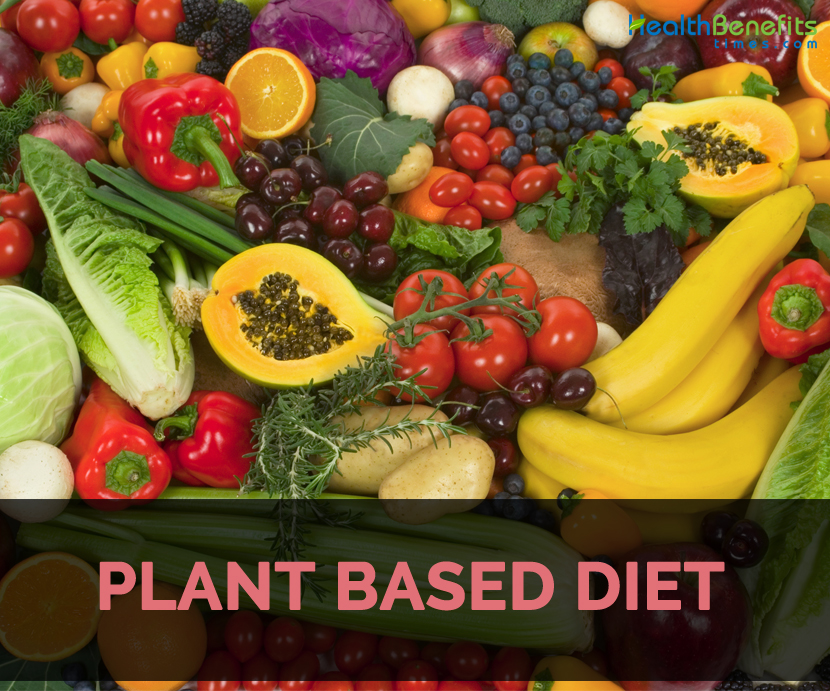
More Plant-Based Diet Can Treat Type 2 Diabetes
Intervention study shows that plant based diet offers numerous benefits sometimes even greater than achieved by powerful prescription drugs and surgery. Some studies involve exercise, relaxation, diets, low level of drugs which consists of nutritious plant based foods which are effective in preventing and treating chronic diseases. It has benefits such as total & LDL cholesterol, blood pressure, clogging of arteries, blood glucose and lower type 2 diabetes and cardiovascular disease.
Study shows that whole grains protect diseases. People consuming whole grains have 25 percent low chances of being prone to diabetes. Another study shows that overweight adults with an intake of 6-10 servings of whole grains a day have low level of insulin. Low level of insulin lowers the chances of both heart diseases and diabetes.
Help Fight Heart Disease and Stroke
Study revealed that both men and women consuming most fruits and vegetables have low level of bad cholesterol and also lowers the chances of cardiovascular disease from 5 to 30 percent lower than those consuming small amounts. Fruits and vegetables combat cardiovascular problems by reducing blood pressure. 15 year study conducted on 4000 young men and women found that people consuming more plant foods such as fruits have fewer chances to experience elevated blood pressure.
Intake of whole grains helps to lower the chances of both stroke and heart diseases. Epidemiological study concludes that people consuming most whole grains have 29 percent low chances for heart diseases than those who consume least. Non-smokers consuming three servings of whole grains a day have half chances of developing heart disease. Moreover, intake of whole grains was related with one-third low chances of ischemic stroke, a stroke which occurs when blood clot blocks an artery in brain.
Study shows that nuts prevent the chances of heart ailments. The study shows that individual consuming nuts 1-4 times weekly have 22 percent low chances of heart attack than those consuming nuts less than once a week. Consuming nuts more than 5 times a week was related with lowering chances of 51 percent.
Those results were consistent in men and women and in younger and older people. In other studies, both walnuts and almonds had a cholesterol-lowering effect when they replaced meat, cheese, or other dairy products. Legumes comprises of peas and dried beans such as pinto beans, chickpeas, kidney beans and peanuts.
Legumes are powerhouse of nutrient and high intake is associated with low chances of heart disease. Total blood cholesterol and LDL cholesterol levels decreased by 6 to 7 percent when consumed 1½ to 5 ounces per day of navy beans, chickpeas, pinto beans, kidney beans, and lentils.
Play a Role in Cancer Prevention
Fruits and vegetables have a crucial role in prevention of cancer. Intake of more foods lowers the chances of mouth, stomach and esophageal cancers. WHO recommend consuming at least 14 ounces of fruits and vegetables per day to lower the chances of cancer. It is recommended to consume 5 to 9 servings of fruits and vegetables a day that depends on age and sex. Generally, vegetables, fruits and physical activity are related with lowering chances of cancers.
Help in Weight Loss
In industrialized and many developing nations, researchers identified foods preventing weight gain. Study shows that fruits and vegetable substituting for foods with high calorie densities such as cheese, fatty meats and candy assist weight loss.
Help to Improve Gut Health
Intake of more whole grain foods could spare people from constipation and other gastrointestinal problems. Fiber found in whole grains lower constipation by increasing bulk, softening stools and speed up the passage of food through intestinal tract. Strain leads to increase in pressure in the colon and leads to diverticular disease and hemorrhoids. Whole grains rich in fiber prevent colon cancer.
Boast Other Health Benefits
Study shows that diet rich in fruits or vegetables are related with lowering chances of type 2 diabetes and bone density. WHO concludes that nutrients such as potassium, vitamin K, boron and manganese found in fruits and vegetables are related with lowering the chances of bone fracture.
The Economic Benefits of a More Plant-Based Diet
Diseases related to a diet too poor in plant foods and too rich in animal foods contribute to skyrocketing health-care costs. The annual cost of angioplasties and coronary bypass operations is about $50 billion, with statin heart-disease drugs adding $15 billion. Spending to treat high blood pressure (including $15 billion for drugs), stroke, diabetes (another $7 billion for drugs), and cancer add additional billions. And, of course, on top of the medical costs are the incalculable amounts of pain and suffering (of both the people with the diseases and their friends and relatives) and lost productivity. Eating a more plant-based diet wouldn’t eliminate all those costs, but would certainly move us well along in the right direction. One study estimated that going vegetarian would save the nation $39 billion to $84 billion annually. If obesity—which is much less common in vegetarians than others—were eliminated, we could save about $73 billion a year.
Health experts’ advice on diet, physical activity, and chronic disease
| Disease | What increases risk | What decreases risk |
| Heart disease |
|
|
| Cancer |
|
|
| Stroke |
|
|
| Type 2 diabetes |
|
|
| Hypertension |
|
|
| Obesity |
|
|
Comments
comments